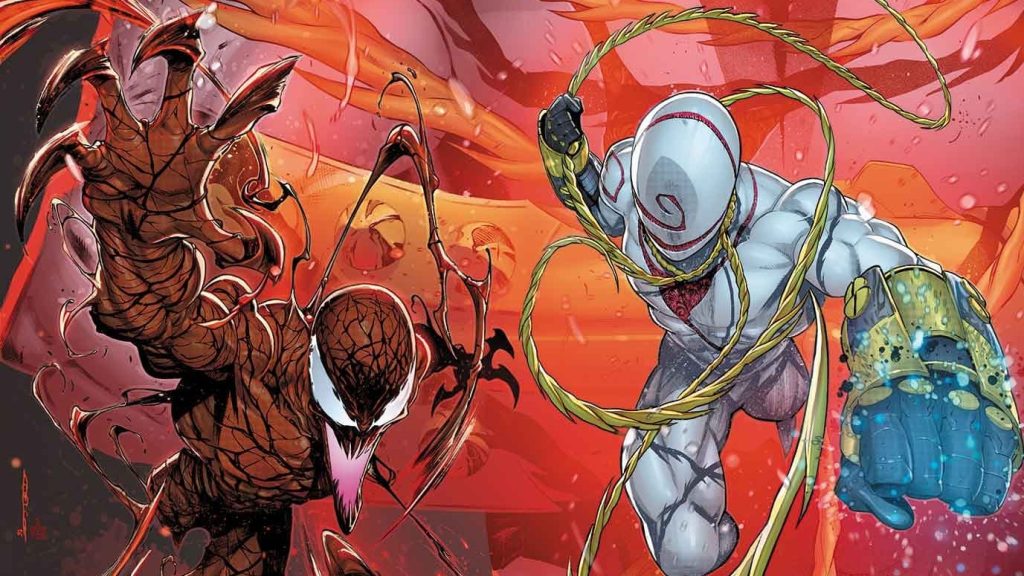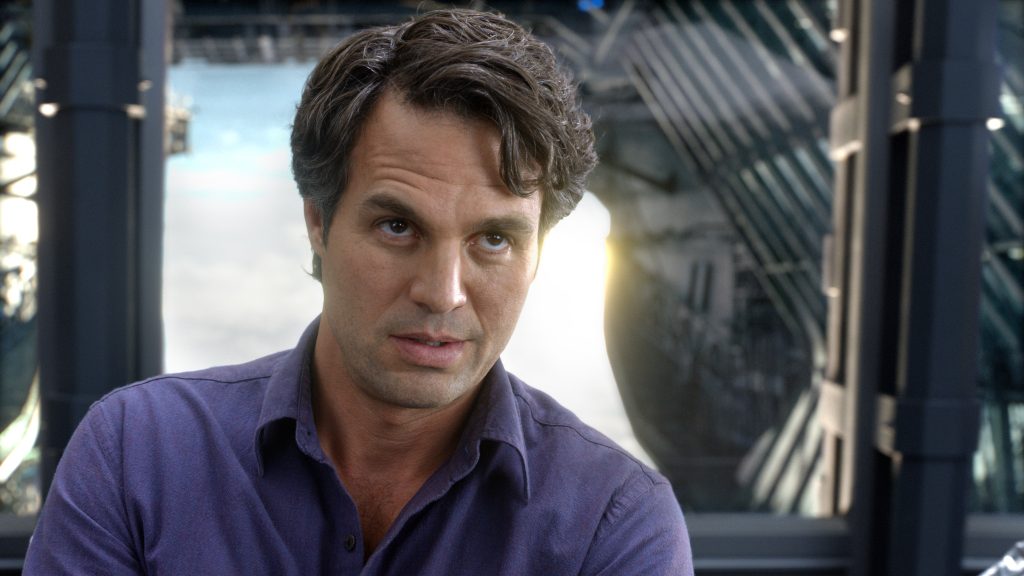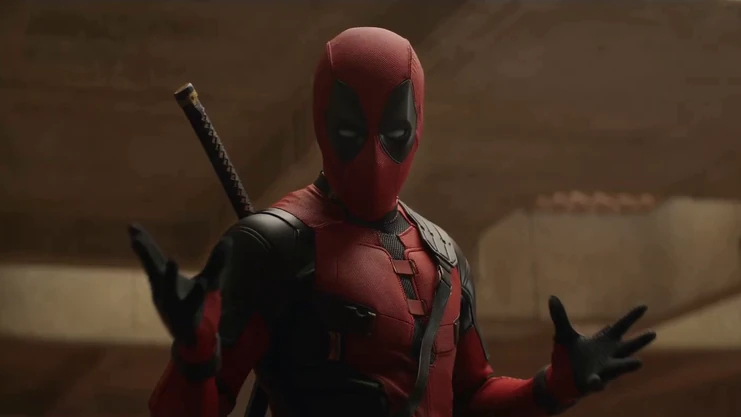After a long Thursday, I saw Star Wars Episode VIII: The Last Jedi.
I went in with no expectations, but with high hopes. I walked out humbled by what I'd just seen. In the days since, conversations about it have dominated my life. Hell, it's dominated my thoughts. It's such a rich, interesting, fun movie that I can't stop talking about it. And I wanted to put some of those thoughts down on paper. So if you also fell deeply in love with the movie, here's a piece that might help put your feelings into words. And if you just don't get why tons of people are lavishing this film with praise, this might help explain it.
MAJOR FRIGGIN' SPOILERS IN THIS. IT'S IMPOSSIBLE TO DISCUSS THE MOVIE IN DEPTH WITHOUT TALKING ABOUT EVERY DETAIL, SO THAT'S WHAT I'M GOING TO DO.
Source: wired.com
Part 1: Looking Back
Rian Johnson is definitively a Star Wars fan, and it shows in the way this movie deals with the legacy of Star Wars.
Little moments between Luke and R2, or Leia and Chewie, or that powerful Luke/Leia scene, feel like logical extensions of the characters from the original trilogy. It’s a huge moment when Leia finally taps into her Force powers (although I'm not in love with the way it's actually visualized); the light saber battles are more intense and fun than anything we've seen previously; and, oh, my God, am I glad we got back to the Original Trilogy characterization of Yoda.
Prequel Yoda's "wise old master-badass" schtick was always incredibly boring, and way inferior to that weird old swamp hermit who taught you life lessons by being an a**hole. Seriously, go re-watch Empire; he's such a little jerk in that movie.
The TLJ version of Luke is a perfectly logical extension of the character from the original trilogy. He's older and more bitter, but still very clearly the same person. This is a movie that loves Star Wars most of all.
Part 2: Moving Forward
Toward the end of the film, Luke is leaving the mortal world, and the frame is mostly filled with the twin suns of Ahch-To, burning in the sky. One is slowly setting, and the other is just cresting the horizon. Metaphorically, the film is closing the book on one era of Star Wars and starting up another.
Last Jedi takes the time to deconstruct and interrogate various aspects of Star Wars and show new sides of those aspects. It admits that the Rebels weren't perfect and that you don't need to have legendary parentage to be a hero. Yes, Force Awakens was the beginning of this new era. But that film, as much as I adore it, was trying to recapture exactly what Star Wars was. This film is designed to elevate it to new heights.
At one point in the movie, I found myself trying to figure out who among Finn, Rey, and Poe, was the "Luke", who was the "Leia", and who was the "Han". Then I realized that was stupid. They’re all their own characters. They have their own personalities, traits, and flaws. Real flaws. This is a movie in which the characters make real mistakes, and that's okay, because it's part of the point (we'll get to that soon).
It's a Star Wars movie that really builds on aspects of Star Wars that have been left incredibly lacking in the past. Aspects like"¦
Part 3: Theme and Character, in General
The Star Wars films have always been plot-forward. That is to say, in any Star Wars movie, the most important thing is the plot. Now there's nothing wrong with that; a movie can be built on many things, but plot, character, and theme are super important.
In a perfect movie – and I don't think such a thing exists yet – every single scene would serve all three of these. But a great movie only really needs to serve two at a time. ALL THREE ARE EQUALLY IMPORTANT. There are beautiful, nearly perfect movies that use the plot to serve the characters (Ladybird), and there are movies whose themes inform everything else about them (Get Out).
I do think that some of the criticism of TLJ comes from not understanding that the plot isn't the only important thing in a movie. The Canto Bight sequence is a good example. In my perusal of the internet, I saw one person refer to this section as "filler", which is simply not true. You can dislike how it was implemented, or object to how much time it took up, but it is definitely there for a reason.
It serves the plot tangentially, but it exists to show Rose and Finn how the universe works outside of their war. The Resistance may be fighting on, but the rich on Canto Bight are still oppressing the poorer classes. Not only that, many of them directly profited from the Galactic Civil War. The one moment in which DJ flips from a Tie Fighter Blueprint to an X-Wing has more depth and complexity in regard to the nature of war than any other Star Wars film to date. Again, this film is about themes and characters. Understanding that is the key to understanding the movie.
Source: slashfilm.com
Part 4: Theme – Smart Rebellions
Well, if we're talking about thematic throughlines, let's analyze two big themes of the film as a whole.
For our first, this film is a thorough refutation of the heroic ideal of the noble sacrifice and how it's been used in Star Wars. The characters in this film who do sacrifice themselves do so in order to ensure the survival of the Resistance. Luke gives his last bit of energy to buy time for the Rebels to escape, and Holdo goes out (in the most bad-ass way possible, by the way) to provide cover for the Resistance to continue their escape.
Contrast this with Finn's attempted sacrifice, which the movie explicitly tells us would have been a bad idea. Finn's ski speeder was incapable of taking out the battering ram cannon. His weapons had melted, and he would have died in the process. And even if he'd succeeded, he would have bought his allies a few more minutes at most at the cost of one of their few remaining soldiers. This would have been a selfish sacrifice that would have lost more than it gained.
Last Jedi is all about fighting smarter, and in doing so, it sets out the idea that the bold, risk-taking, big damn hero way to go is often foolish and wrong. Look at Holdo and Poe's story. Poe gets the entire bomber fleet killed with one of his half-cocked plans, and is demoted for it. Holdo, as such, refuses to inform him about her plans, because he has demonstrated that he’s notunable to function as a leader. Poe crafts another loose-cannon plan, sends Finn and Rose off, and stages a mutiny. But, oops, it turns out that Holdo's plan would have let everyone evacuate safely. Poe's move goes bad (Finn and Rose are caught, and the First Order is informed about the fleeing Resistance ships), and most of the Resistance are annihilated. Poe got all those people killed. Explicitly, they would all be alive if he'd just shut up and trusted Holdo.
She was right.
Fight smarter.
Source: nerdist.com
Part 5: Theme – Failure
This leads us into the overarching theme: failure is a part of life. So learn from it.
People in Last Jedi fail constantly, but to use an old phrase, that’s a feature, not a bug. Luke failed to train Kylo Ren, and let his fear get the best of him. Rey's plan to reach and turn Kylo Ren to the light side is a huge failure. Poe's mutiny gets thousands killed. Finn's execution of Poe's plan and attempted heroic sacrifice are both colossal failures. Snoke fails to keep his spine in one piece.
But Yoda's lesson about failure is a deeply important lesson for a blockbuster film to teach. It's okay to fail, as long as you learn from it. It's why Rey keeps the Jedi texts, although the film repeatedly tells us how awful the Jedi actually were at accomplishing anything. She's not restarting the Jedi religion from the books, but she understands the failures of the past while moving forward in a new way.
Failure teaches us new things. It teaches us what we've done wrong, how to do things better, and how to succeed the next time around. That is an insanely adult lesson for any movie to dole out, and even moreso for a Star Wars film.
Source: screenrant.com
Part 6: Character Arcs
Failure helps our characters accomplish some truly great arcs. Let's go one by one.
Rey starts the film literally begging Luke to come back and help. She's handing him the lightsaber. “Come back,” the film subtextually says to us. “We need you to save the day.” But Luke isn't the hero this go-around. He helps, and he teaches Rey, but Rey herself is the hero. And that’s what she learns throughout the movie. She may not be birthed of great lineage or a long-studying Jedi Master, but she doesn't need to be. She is exactly what she needs to be: a hero.
Poe learns to temper his brashness, and Holdo teaches him that he needs to fight smarter and weigh his options. Sometimes the best option is not to take a presented opportunity. Finn learns bravery, not just to fight, but to avoid cowardly sacrifices in the name of heroism. Rose loses her hero worship in favor of actually being the hero of the Resistance that she originally assumed Finn was. Luke learns to accept his failures, as opposed to simply running from them. He faces Kylo, his greatest failure, and deals with him head on.
Kylo fully commits to his leanings toward the Dark Side, but as the one in charge. He isn't playing Motocross Darth Vader anymore. And he certainly isn't wavering toward the light. Some of these arcs are smaller than others, but all are important and well done.
Source: complex.com
Part 7: F**k The Mystery Box
The Mystery Box is foremost JJ Abrams' term for his method of movie marketing, but it has become something he incorporates into the films themselves.
The idea is that an audience loves a mystery and wants to solve it. Unfortunately, inserting these mysteries into films with no planned answers turns movies into puzzles rather than stories for a certain segment of the fandom. The two big ones here are Who is Snoke? and Who are Rey's parents? Last Jedi sees these mysteries and rolls its eyes at them, preferring to throw them out in order to make the movie better.
Who is Snoke? Who cares? Kylo Ren is the most complexly written villain in Star Wars history, and you really want him to be sidelined in favor of The Emperor Part 2? Killing Snoke to further Kylo's descent into true evil serves the more important character. It's the correct writing decision.
The same applies to Rey's parents. If you reveal that she's a Skywalker or a Kenobi or whatever, it immediately detracts from her individuality. She's just another step in a lineage that the rest of the movie expressly tells us is a failure. Making her into her own person is again the correct decision from a screenwriting standpoint.
Honestly, if you're annoyed that TLJ tossed out your favorite Reddit fan theory, be annoyed that Force Awakens stuck in a useless mystery without bothering to come up with an answer instead.
Also, stop with the fan theories. They can be fun, as theories. But if you're more interested in trying to figure out who Broom Boy is than in why the scene is in the film and what it means, then you're doing movies wrong.
Source: wordpress.com
Part 8: Growing Up
What shocked me about this movie after I saw it was just how much deeper and better it got the more I talked about it. The themes crystalized, and the character arcs solidified. New scene interpretations clicked in my mind. TLJ locked down a spot in my personal Top 10 Movies of the Year, and other than T2: Trainspotting, it's the movie I most often think about from this year.
I love Star Wars. I have since I could form memories, but I can't remember a Star Wars movie that mentally engaged me as much as this one did. I've called it the smartest Star Wars, but it's also the most mature in story, theme, and execution. In a rare turn for one of these movies, its themes are not explicit; they require a bit of thought and discussion to fully tease them out.
It lets you as an audience member come to your own conclusions. It's a grown-up Star Wars film, and after the delightful simplicity of TFA and the grim, free-of-almost-any-interesting-characters Rogue One, a movie that actually makes me think about it is a glorious change of pace.
If Star Wars is going to continue and grow, it needs to change, take risks, and work on improving on previous Star Wars films, rather than just copying them. It needs to keep growing up, and that's exactly what TLJ is asking it to do.
Source: starwars.com
Part 9: Additional Assorted Odds and Ends
Before we wrap up, I just want to touch on a few other things that I liked about the movie that really didn’t fit into their own points.
First of all, Porgs are The Best. I love them. Give me all the Porgs. I will spend all of my money on those good little fat capitalistic birds. I love "˜em. There was maybe one too many Porg scene in the movie, but they weren't overused on the whole.
Neither was the comedy, which was perfect for balancing out the movie’s darker themes. I didn’t find real time to talk about Adam Driver's continuing performance as the most nuanced Star Wars villain, although it’s a standout in the film. I also love his dynamic with Hux. It shows the fragile state of fascist rule, with everybody sniping at each other until it all falls apart.
That final scene is the most emotional and impactful final scene of any of the films. It’s a perfect visualization of the film’s major themes. Mark Hamill is a terrific actor who does not get the credit he's due (Seriously, between this and his performance in Brigsby Bear earlier this year, dude is killing it).
Carrie Fisher is wonderful as always, and if this is her last role, it’s one hell of a closer to a great career. The movie is also visually beautiful and just a stunner to behold. There's a lot to like about it.
Source: inhdw.com
Conclusion: Why Is It Good?
Overall, there are a lot of reasons to like this movie. I could've written twice as much as I did, but I'm way over my word count as it is.
This movie lives up to the promise of what a new Star Wars could be. Something fresh and different and new. Something that feels of the present at some times and looking toward the future at others. An inspiring movie. An intelligent movie. A great friggin' movie.
But the point is less that and more about what this movie is. It's a new Star Wars film. A new direction for a new era. Is it perfect? LOL, no. No movie is (except Zodiac), but it's a brilliant evolution of what a Star Wars film can be. Star Wars was my childhood, as it was probably yours, but it's time for it to be someone else's. It's time for us to let go of Star Wars. Let it be what it will be.
Don't hold it back. Burn down the old. Let something new, and different, and maybe eventually better, grow in its place.














